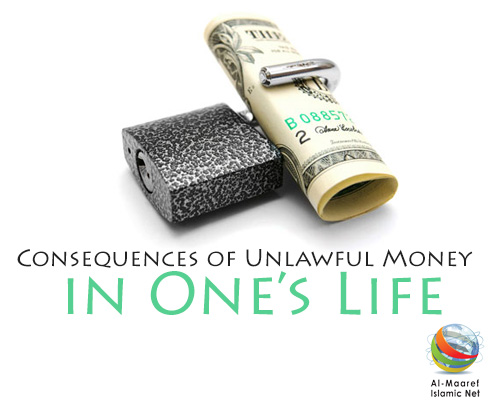The Appearance of the Believer
As the Islamic message takes care of the spiritual and perfectional aspect in
the human being as regards the self building and the development and spur on
ethics, it also takes care of the amiability of the believer’s outer appearance
and his relationships with the others, thus specifying this relationship and
putting religious limits which organize them in accordance to the welfare of
everybody.
Henceforth, we are going to shed light on certain issues related to the
appearance:
Cleanliness
The body cleanliness is so important in the life of the Muslim to the extent
that Islam considers it to be a manifestation of faith; it is related that God’s
prophet (God’s prayers and peace bestowed upon him and his Household) said,
“Cleanliness is next to godliness.”1 It is also related that he
(God’s prayers and peace bestowed upon him and his Household) said, “Clean
yourselves with everything you can, for The Most High God built Islam on
cleanliness and only those who are clean will be admitted to heaven.”2
This is in harmony with the nature of the human being, for the human being in
nature turns away from dirtiness and rejects it. Moreover, the dirty person does
not have any place among the people since everybody turns away from him. It is
related that God’s prophet (God’s prayers and peace bestowed upon him and his
Household) said, “God detests the dirty man.” He was asked, “Who is the
dirty man?” He (God’s prayers and peace bestowed upon him and his Household)
answered, “He is the one from whom the one sitting with him is repulsed.”3
From the Aspects of Cleanliness
1- Clipping the Fingernails: It is related that The Noblest Prophet (God’s
prayers and peace bestowed upon him and his Household) said, “Clipping the
fingernails keep the greatest disease away and yields the sustenance.”4
2- Cleanliness of the Body: It is also related that The Prophet (God’s
prayers and peace bestowed upon him and his Household) said, “God detests
from among His servants the dirty man from whom the one sitting with him is
repulsed.”5
3- The Cleanliness of the Teeth: It is as well related that he (God’s
prayers and peace bestowed upon him and his Household) said, “The souwak is
purification for the mouth, is a pleasure for God.”6
4- The Cleanliness of the Houses: It is also related that he (God’s
prayers and peace bestowed upon him and his Household) said, “Cleaning the
houses keeps poverty away.”7 “Do not keep the garbage in your
house till the night, and get them out during the day because they are the seat
of the devil.”8
Clothes
It is related that Imam Al-Rida (God’s peace bestowed upon him) said to
Ouways, “What do you say as regards the amiable clothes?” He answered, “I was
told that Al-Hassan (God’s peace bestowed upon him) used to put on amiable
clothes and that Jaafar bin Mohammad (God’s peace bestowed upon him) use to take
the new cloth and order that it be immersed in water.” Then, Imam Al-Rida
(God’s peace bestowed upon him) said, “Put on amiable clothes and beautify
yourself…” Then, he recited the following verse:
﴾Say: Who hath forbidden the beautiful (gifts) of God, which He hath
produced for His servants, and the things, clean and pure, (which He hath
produced) for sustenance9﴿10
Islam, therefore, permits the human being to put on whatever clothes he wants
and which grant him beauty and amiable appearance. Still, He forbade him to put
on certain clothes.
The Forbidden Clothes
1- The Fame Garment: It is the garment which leads one to be mocked. It is
related that God’s prophet (God’s prayers and peace be bestowed upon him and his
Household) said, “He who puts on the fame garment in this life will have God
putting on him the clothes of humiliation on the Day of Judgment.”11
2- Man’s Wearing of the Woman’s Clothes and Vice Versa: It is related
that God’s prophet (God’s prayers and peace be bestowed upon him and his
Household) said, “God curses… and the men looking like women and the women
looking like men.”12
3- Resembling the Unbelievers: Some male and female youths imitate the
unbelievers and the singers and others in their clothes, haircut and style, etc.
This admits the opposing culture into our houses, so that we will turn away bit
by bit from our culture and traditions and so that we will be controlled by the
various media means. This is what The Imam The Leader [Sayyed Ali Al-Khaminaei]
named as the cultural invasion.
4- Men’s Wearing of Silk: It is related that God forbade men’s wearing of
silk. In case man performs the prayer while putting on silk, his prayer is
abolished. Imam Al-Khomeini (May his secret be sacred) said, “Men are not
permitted to wear it even outside the prayer too.”13
Notes
- It is impermissible to put on the clothes which have on them the mottos
and advertisements of wine and alcohol.14
- It is impermissible to put on the clothes which circulate for and imitate the
western culture in their stitch, color, etc or which strengthen the westerns’
opposing economics.15
- It is impermissible to cut the hair as an act of resembling the enemies of
Islam and to circulate for their culture.16
- Men are not permitted to put on what is women’s.17
- It is absolutely forbidden that men put on gold or hang it around the neck.18
The Relationships of the Believer
The Muslim must determine his relationships with the others within the religion
frames, so that he will be rescued from falling in disobedience not knowing
where from. Moreover, he must consider men’s and women’s being in the same
place, the forbidden looking, and joking due to their negative and bad impact on
man’s life and due to the fertile ground they provide man with in order to fall
in what is forbidden, the conduct deviation, and indulgence in the life of
luxury and debauchery.
Men’s and Women’s Being at the Same Place
It is meant by this men’s and women’s being at the same place whether in a
house, market, or road. Even though men’s and women’s being at the same place
may be sometimes necessary because man lives in the society in which this is
inescapable, the believer must restrict to the necessities and lessen as much as
possible men’s and women’s being at the same place.
The Forbidden Privacy
Islam forbids the marriageable man’s and woman’s being in privacy. It is
related that Imam Al-Sadik (God’s peace bestowed upon him) said, “Let no
[marriageable] man be in privacy with a [marriageable] woman. Whenever a man is
in privacy with a woman, the devil will be the third one there.”19
Imam Al-Khomeini (May his secret be sacred) said, “In case man and woman meet
in a private place where there is nobody and into where nobody is able to enter,
and in case they fear to fall into what is forbidden, then they must leave the
place.”20
Looking
Islam emphasizes the issue of looking. It considers that the eye may commit
adultery, and its adultery is in fact the forbidden looking. Because of this,
The Most High God orders us to lower our gaze in His Saying,
﴾Say to the believing men that they should lower their gaze and guard
their modesty: that will make for greater purity for them: And God is well
acquainted with all that they do﴿21
It is related that Imam Al-Sadik (God’s peace bestowed upon him) said, “The
gaze is a poisoned arrow from Satan’s arrows. And how many a gaze has resulted
in long term regret.”22 It is also related that he (God’s peace
bestowed upon him) said, “A look after a look plants the desire in the heart,
and this is sufficient to seduce the looker.” 23
Of course, not every aspect of looking is forbidden, for looking may be
sometimes at someone from the same sex and at the other times at someone from
the other sex.
* Looking at the Same Sex: It is permissible for the man to look at
someone from the same sex i.e. at the man, and so is the case as regards the
woman’s looking at the woman. However, this is permissible except for the
looking at the private parts and in condition that the looking be without any
pleasure or suspicion, for looking at the private parts or at the whole body
with pleasure or suspicion is forbidden.”24
* Looking at the Other Sex: This looking may be at the unmarriageable
persons like the mother, sister, and aunt; here, it is permissible to look at
them except at the private parts and without pleasure and suspicion.25
And this looking may be at the marriageable persons from the other sex; here, it
is impermissible that the man looks at anything (the hair and all the body)
rather than the face and the palms of the marriageable woman whether with or
without pleasure and suspicion. Moreover, it is impermissible to look even at
the face and the palms with pleasure and suspicion.26 Likewise, it is
impermissible that the woman looks at anything rather than the face and the
palms of the marriageable man.27
Touching
Everything forbidden to be looked at is forbidden to be touched. It is
forbidden that the marriageable man touches the marriageable woman, and vice
versa. It is as well impermissible that the marriageable man and woman shake
hands with each other.28
It is related that The Prophet (God’s prayers and peace be bestowed upon him and
his Household) said, “He who shakes hands with a marriageable woman will have
God’s Wrath be descended upon him. And he who is committed to the performance of
a certain forbiddance will be joined with the devil with a chain of fire, and
then he will be thrown in hell.”29 It is also related that he
(God’s prayers and peace be bestowed upon him and his Household) said, “He
who shakes hands with a marriageable woman will have The Most Glorious and
Reverent God’s Wrath be descended upon him.”30
Joking and Much Laughing
It is demanded that the believers’ joke and laugh with each other while
taking in consideration the preservation of the Islamic atmosphere and the
believing spirituality; this is so because joking and laughing gladden the
believers.
It is related that Imam Al-Sadik (God’s peace bestowed upon him) said, “Every
believer has a sense of humor.” He was asked, “What is meant by the sense of
humor?” He (God’s peace bestowed upon him) answered, “It is the joking.”31
However, when joking moves outside its frame, it becomes dispraised as is
related to The Prince of the Believers (God’s peace bestowed upon him),
“Whenever a man jokes, he abates a part of his mind.” By this, it is meant
that sort of joking which brings down the awe and the reverence.
Still, joking with the women is detested by The Most High God because it
represents the easiest accesses for Satan into the screen of timidity between
them. It is related that The Concluding Prophet (God’s prayers and peace be
bestowed upon him and his Household) said, “He who jokes with a
[marriageable] woman will have God imprisoning him in this life a thousand years
for every single word.”
1- Mustadrak
Safeenat Al-Bihar [Making Up for the Ship of the Seas]/ Part Ten/ Page 93
2- Meezan Al-Hekma [The Standard of Sagacity]/ Part Four/ Page 3303
3- Mustadrak Al-Wasael [Making Up For the Means]/ Part Three/ Question 236
4- Wasael Al-Sheeaa [The Means of the Shiite]/ Part Two/ Page 131
5- Wasael Al-Sheeaa/ Part Two/ Page 134
6- Wasael Al-Sheeaa/ Part Two/ Page 7
7- Meezan Al-Hekma [The Standard of Sagacity]/ Part Four/ Page 3302
8- Meezan Al-Hekma/ Part Four/ Page 3302
9- The Nobel Qur’an/ Al-Araf [The Heights] Chapter/ Verse 32
10- Bihar Al-Anwar [The Seas of Lights]/ Part Sixty Seven/ Page 298
11- Bihar Al-Anwar [The Seas of Lights]/ Part Sixty Seven/ Page 316
12- Wasael Al-Sheeaa [The Means of the Shiite]/ Part Seventeen/ Question 284
13- Tahreer Al-Waseela [Editing the Means]/ Part One/ Page 145/ Question 15
14- Ajweebat Al-Istifta’at [The Answers to the Consultations]/ Part Two/ Page
103/ Question 294
15- Ajweebat Al-Istifta’at/ Part Two/ Page 103/ Question 292
16- Ajweebat Al-Istifta’at [The Answers to the Consultations]/ Part Two/ Page
101/ Question 290
17- Ajweebat Al-Istifta’at/ Part Two/ Page 100/ Question 287
18- Ajweebat Al-Istifta’at/ Part One/ Page 325/ Question 1086
19- Mustadrak Al-Wasael [Making Up for the Means]/ Part Fourteen/ Question 265
20- Tawdeeh Al-Masael [The Illustration of the Questions]/ Question 2445
21- The Noble Qur’an/ Al-Nour [The Light] Chapter/ Verse 30
22- Ousoul Al-Kafi [The Principles of the Sufficient]/ Part Five/ Page 559
23- Wasael Al-Sheeaa [The Means of the Shiite]/ Part Two/ Page 192
24- Tahreer Al-Waseela [Editing the Means]/ Part Two/ Page 217/ Question 16
25- Tahreer Al-Waseela/ Part Two/ Page 217/ Question 17
26- Tahreer Al-Waseela [Editing the Means]/ Part Two/ Page 217/ Question 18
27- Tahreer Al-Waseela/ Part Two/ Page 217/ Question 19
28- Tahreer Al-Waseela/ Part Two/ Page 217/ Question 20
29- Bihar Al-Anwar [The Seas of Lights]/ Part Hundred and One/ Page 32
30- Mustanad Al-Sheeaa/ Part Sixteen/ Page 60
31- Sharh Ousoul Al-Kafi [The Illustration of the Principles of the Sufficient]/
Part Eleven/ Page 144




















